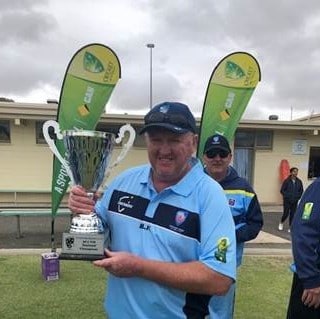
Blind cricket at Central Coast schools! Delivered by a NSW blind cricket player, Coast schools can volunteer to host the program.
The not-for-profit organisation, Social Futures, is rolling out blind cricket to develop an awareness of disability and demonstrate how the community can adapt and be inclusive to all – in this case through sport.
Social Futures community development coordinator, Scott Jones, will be visiting Central Coast schools to teach the sport. He is a former NSW captain and current state blind cricket team member.
“The rules of blind cricket are based on standard cricket rules, with a couple of key modifications – the ball is hard plastic and filled with ball bearings to provide audible cues. The wickets are made of metal and have the ability to rattle when shaken to identify their location,” Scott said.
Scott said that the sport is not only inclusive but loads of fun to play.
“Every student can take part in this interactive game. When I visit school, I also have a short chat about disability awareness and inclusive sports,” he said.
“When playing blind cricket, we use experiential glasses that replicate the experience of vision impairment and when deprived of an essential sense – vision – players are prompted to find new skills as they play.”
Scott explains that in blind cricket there are 11 players in each team and under competitive blind cricket rules there must be at least four players who are totally blind and seven partially blind players. That seven includes a minimum of three players with less than 5% vision and minimum of three players with less than 10% vision.
“Other differences to blind cricket are that verbal signals are widely used both by umpires and players,” he said.
“The bowler must ask the batsman if he is ready and shout ‘Play!’ as he bowls the ball, and they must bounce at least twice when bowling to a completely blind batsman but only once to someone with partial sight.
“All methods of dismissal are in play including bowled, caught, LBW and stumped. Totally blind batsman are scored two runs for every one run they achieve.”
Primary schools who’d like Scott to visit for a teaching session can contact Social Futures on [email protected] or 1800 522 679.